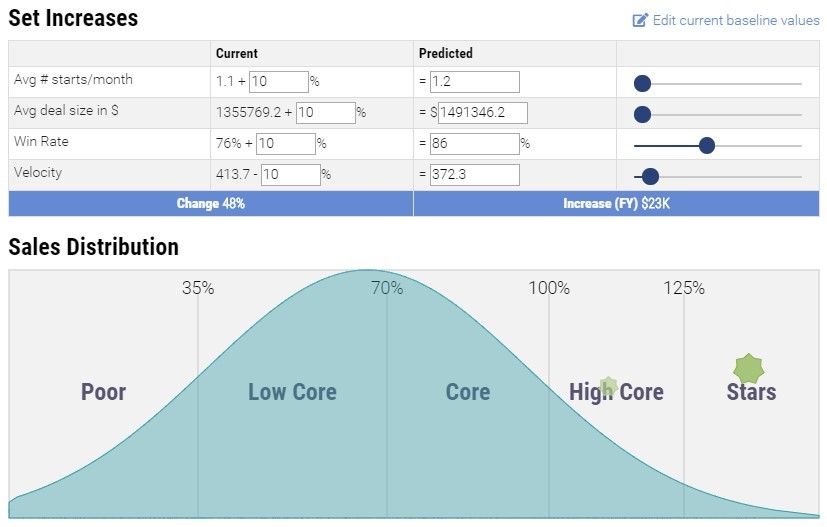By Steve Jensen
4 min read
Sometimes you have to tell it like it is.
Radical Candor is a catchphrase that has gained popularity in management in the last couple of years. The concept came from Kim Scott’s book of the same name and has inspired a movement. As I was reading the book, it occurred to me that the idea has a direct application to sales leadership—especially in the 1 on 1.
Candor in the 1 on 1
What is Radical Candor? From the book, “Radical Candor is caring personally while challenging directly. It’s guidance that’s kind and clear, specific and sincere.” Being able to deliver hard facts with empathy and understanding is the hallmark of a leader committed to radical candor.
It’s an easy concept to incorporate into the 1 on 1. Reps want to be coached. They want to have the opportunity to improve by learning, working on skills and by emulating other reps they see as successful. Opening the channels of communication—both positive and negative information—creates an atmosphere of trust and lays the groundwork for intentional improvement.
Great Sales Coaches know that the spirit of Radical Candor is something found in the coaching process of the best sales leaders. Here are 6 ways to use Radical Candor concepts as a world-class sales coach:
- Remove defensiveness with data
Although you should never surprise a rep with data they haven’t seen, sharing data on goal achievement is a great way to even the playing field and ground the conversation in the reality of the situation. This will also help avoid any nasty surprises for you or for the rep.
- Give feedback and consider aspirations
Give honest feedback coupled with aspirational guidance. A rep should be able to leave a 1 on 1 with a clear idea of his or her performance and exactly what is required to meet their goals.
- Set Aspirational coaching goals
The best coaching goals are the ones that involve the rep’s career aspirations as a major component.
A “What If” calculator can be a valuable tool here. This allows you to experiment with changes to different parts of the sales equation, showing the results of changes to any of the variables. With it, you can show a rep the results of adding activities to the mix, or closing more deals or doing it faster, for example. Xvoyant includes a “What If” calculator that allows you to adjust any combination of variables and shows the resulting change in revenue. Knowing the outcome can provide a rep with the encouragement he or she needs to establish stretch goals with a good idea of the ultimate impact.

- Be consistent
Don’t practice full disclosure sometimes and not others. Trust is developed when you are constant in your candor. Reps know what to expect from meeting to meeting and can base their activities and goals on that knowledge.
- Have a worksheet/agenda
Prepare an agenda in advance that you and the rep can both access. Having an agenda helps keep you on track and keeps diversions to a minimum. It also gives the rep a heads-up as to what you want to discuss, giving the rep time to prepare. Be sure to include subjects that your rep wants to discuss.
- Make it about the rep
No more than 10% of a 1:1 should ever be spent reviewing past performance in a coaching session. 90% of the time needs to be in forward-looking strategic discussion.
Paint the Target. Once your rep has shared their definition of “Awesome,” don’t talk about anything other than how to get there. Great leaders show the way.
Don’t be the “know it all” sales manager. Every rep on your team already knows if they are hitting goal or not. Coaching isn’t about stack-ranking or averages. It’s about personalization and connection. If you can’t help them connect the dots to get to where they want to be in their journey, you’re letting them down as a leader. So, make sure you’re focused on connection rather than correction. The rep should feel free and safe to use radical candor with you in return. Without honesty and empathy from both parties, the ability to set meaningful goals is damaged.
In Conclusion
Radical condor has a place in sales coaching. It is the key to clear communication and goal establishment. It works for reps when reporting their progress and for leaders when explaining a rep’s standing and in creating programs for individual improvement.
Steve Jensen is VP of Marketing at Xvoyant